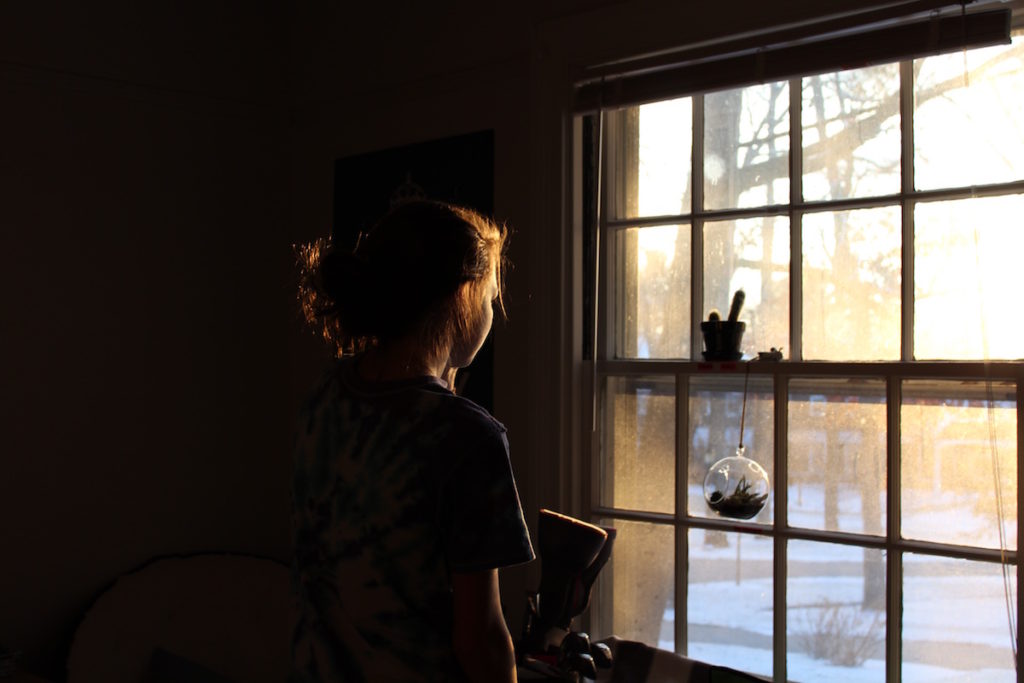“It’s my choice to use/drink. It doesn’t affect anyone but me.”
The above statement is one of the biggest lies that addicted people tell themselves and others. I watched an absolutely heartbreaking story in the news earlier this week about 16-year-old boy who now helps others by sharing his story of surviving his parents’ drug addiction. The oldest of three children, Zaine lost both of his parents to heroin overdoses and is now left with his grandmother, caring for his two younger sisters. “It’s been hell,” the 16-year-old told reporters. “You can try to imagine what it’s like, but it’s even worse than you imagine.” Unfortunately, when there is an addicted person or people in the family – it has a profound effect on everyone in the family. And for that person or people who are using – they are too sick with addiction to see how their drug or alcohol use is hurting everyone else.
Casualties of the Disease of Addiction.
While the addicted person may seem like the only person who is sick, it’s not the case. Gradually, addiction can affect the thought process and behavior of each family member to the point that they become different people as well. Family members may enable the behavior of their loved one by giving into their demands, ignoring the chaos, blaming themselves, or obsessing over their loved one’s behaviors, actions or whereabouts. They can become so preoccupied with their loved one’s drinking or drug use, they’ll obsess about ways to control it. Family members may experience emotions that leave them “intoxicated” in a sense: Shame, guilt, resentment, self-pity, worry and anger. They may even try to numb themselves with substances, as well. When family members may hear the excuse that, “It’s my choice and it doesn’t hurt anyone else,” they may feel bad that they are hurt, too. They may try to “cover” for their addicted loved one or keep secrets to protect their addiction. When these types of behaviors occur, it limits each family member’s ability to be mentally and emotionally present to other people, children or loved ones in their lives – making them casualties of addiction, too.
The Four Phases of the Addicted Family.
Because of the above factors, family members can often times follow the same type of downward spiral as the person using substances – even if they’re completely sober. There are four distinct phases that family members of addicted people tend to go through in this spiral:
-
- Concern. Addiction to drugs or alcohol don’t typically happen overnight. It usually involves small changes, and gradually builds. At first, family members may notice these small changes in their loved one and realize there may be a problem. In phase one, family members react to the addiction out of genuine concern for their loved one. Unfortunately, at this point, most family members are only just beginning to experience the effects of their loved one’s drug and alcohol use. Often times in this phase, family members don’t understand the extent to which addiction will impact their lives.
- Defense. Think about the five stages of loss and grief: One of the first reactions to learning of the terminal illness or death of a loved one is to deny the reality of the situation. Because reality can bring such a sense of overwhelming emotions, our defense mechanism is to buffer the shock, grief and fear. Families with an addicted loved one enter a similar phase by blocking out the reality of the situation. Family members become so enthralled with their addicted loved one’s behavior, the “protect” them by lying to friends, other family members, spouses and employers. In phase two, family members not only tolerate their addicted loved one’s behavior and actions, they feel increasingly responsible for the problems that begin to arise. While the person using the substance may experience blackouts from drinking or drug use, family members experience their own “blackouts” – by forgetting or denying negative actions or behavior of their loved one, and trying to minimize the consequences.
- Adaptation. After repeatedly denying and defending their loved one’s behaviors, family members tend to enter into a phase of adaptation, meaning they change their own behaviors in order to adapt to the addicted person’s behavior. We often say that family members “lose themselves” in their loved one’s addiction – and this is the phase in which it happens. A parent, grandparent, partner or spouse may try to become the “perfect person” for their loved one; hoping that the way that they behave will make their addicted one happy. Unfortunately, this is the phase that many family members begin to feel as though they are failures – and they end up needing medical or mental health care of their own. By this point, family members may give so much of themselves to their loved one that they have nothing left to take care of themselves. This can mean physically, emotionally, mentally or financially.
- Exhaustion. By phase four, addiction has completely overtaken the family – and family members defend their shame, guilt, fear, resentment, anger and self-pity. There is a good chance that family members will begin to experience severe anxiety and depression, and completely lose their self-confidence and self-worth. Fear rules their lives. Exhaustion is the bottom for family members.
Much like with the addicted person, family members shouldn’t wait until they reach their bottom to get help. Whether you are in phase 1 or phase 4 – there is help and there is hope for both addiction – and the family impacted by it. Don’t wait to hit the bottom: You risk losing your sanity, your health and potentially even your life.


